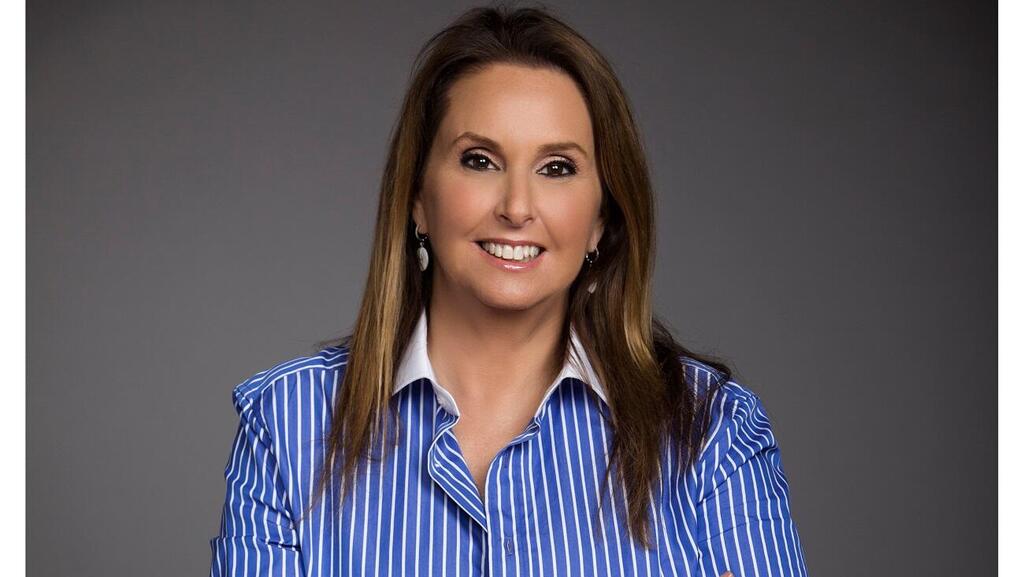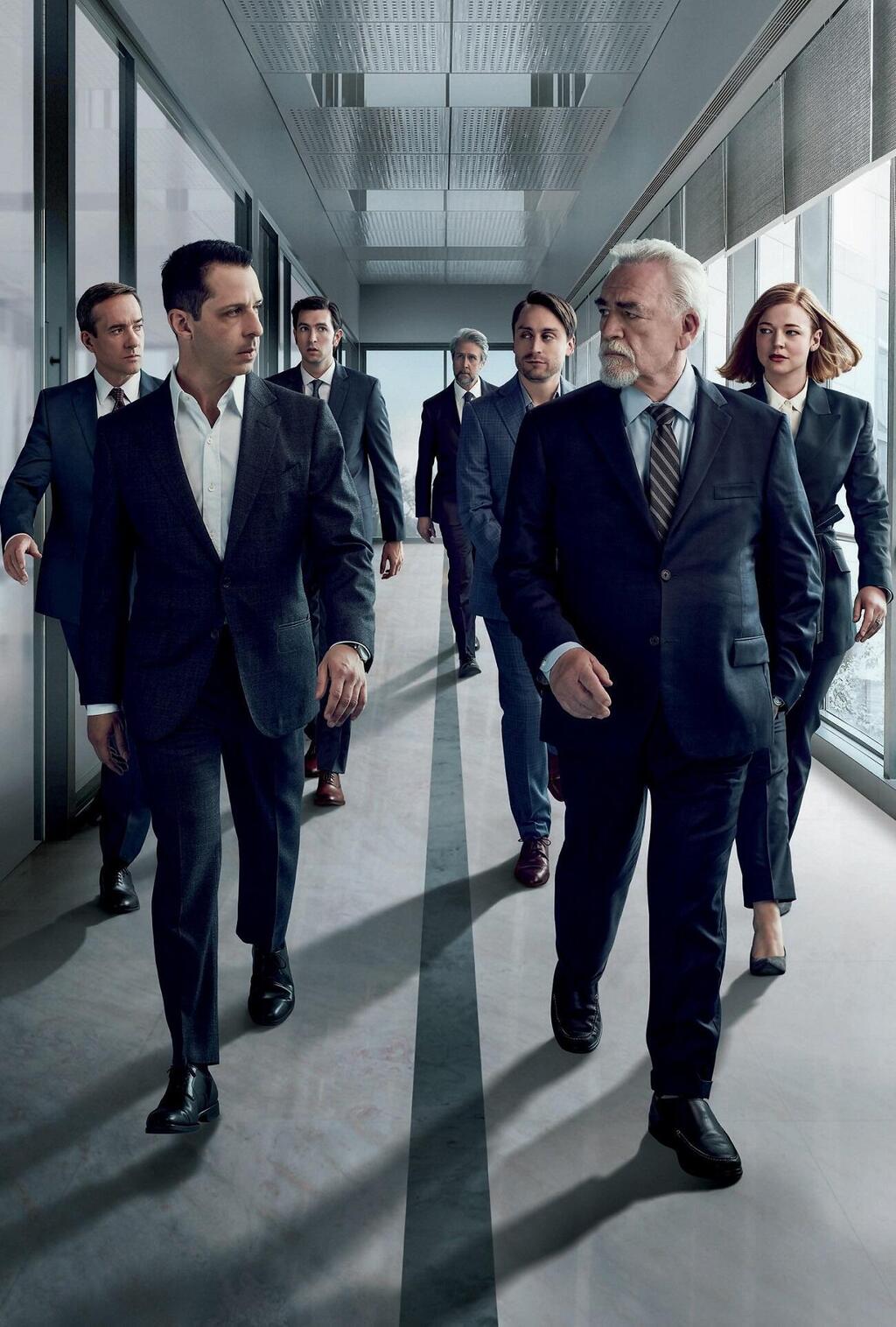“Recently, a client who had set up a successful company and managed it on his own came to us. He has two daughters. One is an artist. The other has a background in the relevant field, but didn’t want to manage the company for fear of failure. So, we hooked them up with a psychologist specializing in these kinds of dilemmas. The daughter underwent treatment and eventually entered the family business.
Related stories:
The client doesn’t only care about whether he’s making or losing another quarter of a percent profit. He also cares about who’ll continue his company. It’s his life’s work.”
This sounds perhaps like too conciliatory an ending for HBO TV drama Succession which has gotten millions of viewers hooked on the crazy troubles of the very rich. But it was a completely real situation for Dafna Gonen, CEO of Payoneer Family Office that manages the wealth of very rich families and individuals – and a lot more than just their money.
Shmuel Ben Arie, head of Investments at Payoneer, is all too familiar with the dramas of the multi-millionaires: “We had a case of a son studying at a top college in the center of the country, who thought he was an investment genius. He was out partying every night and people everywhere were asking him to invest in initiatives, or asking him to open up a bar with him. To keep up his social standing, he felt he had to go with the flow.
'He’s driving me crazy with investments.' The father needed us as 'policemen' to review investments people had suggested to the son, so as to talk him out of them so that it wouldn’t harm their relationship.“
How did you do it?
“We took him to see real estate and investments. Together, we checked out projects. We showed him where the dangers lay. The son was cooperative and the father was quiet as he had a ‘buffer.’ We played bad cop. Everyone benefited.“
What do you deal with apart from profit?
“A client once said to me ‘What do I do if my son’s a gambling addict? How can I be sure that the next generation is going to do the right thing with the money?’ So, you build mechanisms so the son lacks for nothing, but if he does mess up, you won’t lose everything because the assets aren’t registered in his name.
"In certain cases, you open trust funds. With trust funds, it’s very clear what happens when the parents die, under what circumstances you can receive the money, what to do with it, how much is set aside each month, and what happens if he needs money for real estate or studies.
“Sometimes the wife calls wanting to ensure that her husband is being careful, spreading his risk wisely. You also have parents saying ‘I don’t trust my son-in-law. He’s only with my daughter for the money.’ We also get people refusing to sign prenuptial agreements. That’s why Family Office always tells you to invest 10% in profitable real estate and 40% in bond funds.”
Concierge for life itself
Let’s go over the terms: Single Family Office is a body that manages the capital, assets and needs of a single family. Multi-Family Office deals with the assets and issues of several families at the same time.
Dr. Nava Michael-Tsabari, who researches family businesses and how they are passed on to the next generation at the Raya Strauss Family Business Research Center named after her mother, explains:
“In their first decade, a lot of Family Office companies realized that the risk isn’t necessarily in managing the money itself, but rather in managing the family: The arguments, the next generation’s lack of understanding and the family’s division into small parts because they don’t get along. A large part of Family Offices started dealing with the family itself. Advisors look not only at investments, but also at relationships within the family.”
Despite the family connection, Michael-Tsabari is no longer part of the Strauss company. She nonetheless shares lessons learned at the time she was in the family business.
“I sold my shares 20 years ago. When I was a little girl, Strauss was a small dairy plant in Nahariya. I didn’t like everyone looking at me, knowing who I was, but a lot of people worked at Strauss then. I wasn’t raised in money.”
Before the concept of the Family Office officially made Aliyah from the asset-aristocracies of Europe and the United States, there wasn’t any kind of organized body in charge of family money, connecting advisors regarding issues of investments, marriage, divorce, Teslas, yachts, restoration of parental control or late-night panic attacks.
Now, Family Office is a luxury label like Swiss banks, Swiss watches, Swiss chocolate – anything that comes from Switzerland in fact. That’s where most Family Office money is managed.
“In Israel, the concept of a family office found itself threatened from two directions: Inflation and degradation. Insurance agents saw an opportunity and made it their calling card, knowing neither how to manage millions nor understanding their client’s profiles.”
“In the United States, if you have up to $20 million in liquid assets, you’ll go Platinum banking. If you have above $20 million, you’ll go to Multi-Family Office. Once you have over $100 million, you go to Single Family Office,” explains Denny Chared who manages DC Finance, a Family Office company.
“All the big families - Strauss, Leviev, Arison, Sylvan Adams - they all have Single Family Office. Multi-Family Office starts at about 25 million NIS in Israel. Single Family Office deals with everything for the family – fleets of jets, all kinds of investments, registering the children for kindergarten and university, concierge services. Everything.”
Ben Arie clarifies: “The most important thing we provide in Multi-Family Office is genuine trust on financial matters. It’s not just about building portfolios. Wealthy people know what they’re worth, so they’re forever investing. ‘Let’s get into this real estate project,’ ‘Let’s invest in my uncle’s company.’ Any fund broker who spots someone who’s worth a certain amount, or who’s just made an exit, will try sell him some kind of fund.”
“He'll come to Family Office, with all these offers and we check them out for him to see if they’re decent products, if they’re appropriate for the family profile and its needs. Only when we understand all this can we build the portfolio – how much real estate, how much in the stock market, how much in alternative investments.”
“We’ll also represent clients in business deals. If a client wants to buy offices in Tel Aviv for example, we’ll go to meet the sellers. We’ll go into the field to see everything and conduct the negotiations either with him or in his place.”
The corner of the corner
Diving deep into the needs of satisfied customers reveals that there is no area that doesn’t require advice: “We sometimes get lifestyle questions. People want to enjoy their money,“ says Family Office manager, T. with 25 year’s stock market experience behind him.
‘I want to buy a Ferrari for $2 million.’ You could go into the car dealership, but you could also save 10% by importing privately. The client doesn’t always know what car they want. I’ve brought a professional car advisor to a client, who knows how to get test drives for all kinds of cars. I also negotiate with the company.
It’s like you have personal jewelers or people who can get Beyoncé tickets and you know you can trust that they’ll be the real thing. This is very high-resolution stuff, but sometimes that’s what I’m asked to do.”
R. is a businessman who sold his company for tens of millions of dollars by the time he was 50. “For the first time in my life, I had big money – beyond what I needed for everyday expenses. Money had never been my main drive. I didn’t have any special plans as to what I’d do with it.
The moment I sold the company and I suddenly had money that was mine rather than the company’s, I lost the support system I’d around me. When I was managing the company, I had lawyers, accountants, secretaries and a variety of professionals surrounding me. If I needed consultation, or help thinking about something, I had people around me. I suddenly felt I needed someone to lean on, someone to advise me.”
“I didn’t touch the money for the first year. The money sat in my bank account and I didn’t look at it. It took me about a year to decide to investigate my options. From the outset, I knew I wanted someone to look at the money in a broader sense and who could give me investment advice. Because I have five children, I needed someone to look at the money through a long-term family lens.“
“For me, this is the right place for my investment and financial management and the management of family wealth. I have an assistant to tie up the little things. I try to look at my diary every now and then set up a meeting on my own, order tickets for a show on my own, make hotel reservations overseas. These are things I can still do.“
Discretion is also a stumbling block. R. gradually starts telling us: "I immediately shared information about my assets, but when it comes to how I’m feeling, it takes time. When you have an advisor who’s close to you, that you’ve known for years, you’ll talk to him not only about the numbers, but also about your feelings and struggles.
For me, it’s important that he should see the full picture, that he should know my family. In recent years, the older children have been themselves meeting with Family Office, sometimes without me. I think it’s been very beneficial. From the beginning, it’s been important for me that my children should be able to talk about money and understand it.”
How does Family Office get the most sought-after, innovative clients?
“We don’t actively approach clients,” Ben Arie tells us. “But if we hear about a big exit and we have a client connected to it, we’ll say to him ‘Any chance you could pick up the phone and recommend us to your friend?’ Our relationship with a client might start off at a three, but within a few years, it’ll be at 19.
We visit the homes of our clients and some of them have been to ours. Their wives and children know us. We go to their family celebrations. I always say that my greatest fear is a client losing all his money or going into some kind of financial downward spiral while he’s with us. We want to take care of them, providing them with the highest degree of financial quiet.”
Old money, new money
The conventions that Denny organizes are a place for families to meet up, share dilemmas in a non-judgmental setting and learn about investments and services.
“We are presently the largest organization in the world for Family Office conventions,” Chared tells us. “We have conventions in 14 locations including Manhattan, Toronto, London, Los Angeles and Abu Dhabi. Someone from the Arison, Spielberg, Silverstein, Rockefeller, Bronfman or the Pritzker family will give a talk or give an interview and then the attendants are encouraged to mingle and talk among themselves.
No one knows we’re in Israel, but anyone looking closely, will see that our spokespersons include Waze co-founder, Uri Levine and members of the Strauss family. There’s definitely an Israeli bias.”
How did the need for these conventions arise?
“It all started as I was sitting with Nava Michael-Tsabari and Israel Eliyahu from two of the most serious families – Strauss and Eliyahu and we realized that there was no kind of conference meeting their needs. What keeps people like them up at night? Their children’s emotional well-being, not just their investments. I wanted to create a community with knowledge. There are questions that even the most experienced advisor you’ve hired will be unable to answer. You want to consult with another family like your own.”
Give an example.
“I invited Jaynie Schultz from a very big, wealthy Dallas family. She was sitting with her husband who was not wealthy when they met and they talked about what it’s like marrying into money. The conversation drifted far beyond prenuptial agreements. There’s much more to it. He said that he was surprised by the family’s organizational culture. He suddenly found himself, a regular guy, in a family with rules and order. He found it hard at the beginning. He needed to learn how to deal with being lovingly told to “sign here.”
Extremely sensitive stories come up at these meetings. This is what people come for – to feel they’re not alone. I have cousins who don’t talk to each other because of a run-down apartment in Hadera. It's about relationships between people. It’s not really about the money.”
“Old Money and New Money are different,” Chared distinguishes the two: “Old Money, like Strauss, know what passing on assets to the next generation is all about. New Money, however – like money from exits – they don’t know about these things. They were raised in ordinary middle-class families and they suddenly have money.
The idea of our conventions is that they can all meet one another. They can teach one another where to invest, where to send their children and how to divide up the inheritance.”
Payment to the offices is generally on a monthly basis and varies in accordance with the assets managed.
“At Payoneer, it can either be a percentage of the money for which we are responsible, or it can be a monthly fixed retainer of NIS 20,000, ” Ben Arie explains.
"Our trading model means that we don’t profit from any external organizations. All the organizations selling projects and bonds also pay us commission, but we turn over all of those takings to the client. Our only source of income is the payment the client makes to Family Office, leaving us free to choose what’s genuinely best for any specific family.”
Family Office also sometimes manage the family’s philanthropy, or investments in projects that do not foresee profit.
“The family might say that a certain amount of money is designated to make the world a better place” Chared explains.
“Family Office is an important economic player: it's a lot of liquid cash that you can make decisions about from one moment to the next. It’s not money that needs to get past investments committees. With this money, it’s not just about making more money.”
The secrets of the will
A common denominator among these families is that they’re concerned not just with assets, but also about decisions regarding the future of the business founded by the first generation.
Nava Michael-Tsabari, who knows about these things, offers advice to families and is leading academic research in the field: “Some things are recurrent and predictable - the challenges are structural. The first generation is always concentrated. The initiator is usually a bit of a dictator who doesn’t ask other people what to do. He owns the shares – maybe some are in his wife’s name or his brother’s wife's name. He makes decisions more or less on his own.
Whenever I describe the first generation, silence descends on the room. Without knowing the people in the room, I’m describing the company founder – their father or grandfather and they almost always have the same profile. He always thinks he knows what’s best for the family and they never tell him what they think. When I talk about the company founder, the company founders in the room are always a bit irritated with me."
What characterizes the second generation?
“Watching from the outside, people generally say ‘They were born with a silver spoon in their mouth’, that they were just given everything and they didn’t have to work for it. The second generation don’t always know whether or not to go into the business.
In the third generation, there can be five people, 15, or even 50. In some families in Europe or in the United States, whose wealth is over 200 years old, there can be 600 people, each person’s voice is equal to the value of their company shares. It has to be a democracy with extremely open mechanisms. They have to talk like a family.
Operating a collective isn’t easy. Rules must apply to everyone. From the outside, it all looks very shiny. Just like in a kibbutz, however, managing a group over an extended period presents great challenges.”
Do inheritances tend to be the main root of contention?
“At the end of the day, we must remember that these people aren’t arguing over money. They have enough money to live and eat. They’re arguing about who their father loves more and who’s best to keep up the family legacy. This is why I tell families who come to me that the more just and equal the division is, the greater the chances of the family staying together."






